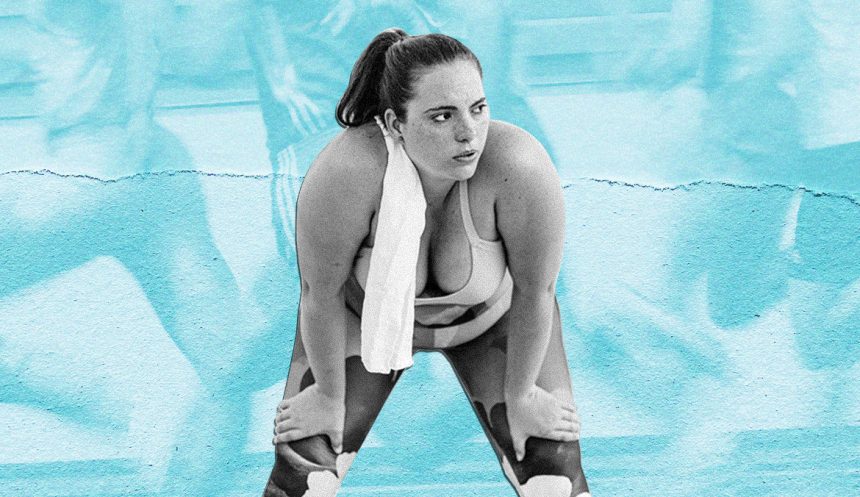You’ve seen the pictures: The ones where a runner is covered in their own feces, struggling through the end of a race. Maybe your marathon-running bestie has war stories of barely making it to the porta-potty—or not making it at all. But runner’s trots are not a badge of honor, nor are they normal. It turns out runner’s diarrhea is not inevitable when logging miles. If you find yourself dealing with runner’s diarrhea, it’s time to make some changes. Soiled shorts are not a rite of passage in the running world. Improper fueling and dehydration are often the culprits for these unpleasant bowel emergencies, and the good news is that they are mostly preventable. We talked to two sports dietitians who specialize in running and nutrition to shed light on why runner’s diarrhea happens and how to avoid it. Read on to find out more.
Is diarrhea while running normal?
If running is clearing more than your mind, you’re not alone. Kylee Van Horn, RDN, of Flynutrition, who works with endurance athletes, explains that some runners may experience diarrhea due to their nutrition before, during, or in everyday life. While conditions like ischemic colitis can cause bowel issues for ultrarunners, recreational runners are more likely dealing with digestive troubles related to nutrition. It can be challenging to pinpoint the exact cause, but under-fueling is a common culprit. Pooping your pants should not be considered a normal consequence of running. To address this issue, it’s essential to focus on proper nutrition and hydration. Understanding what your body needs and making necessary adjustments can make a significant difference in preventing runner’s diarrhea.
But why do so many runners shrug off runner’s diarrhea as a typical part of the sport? When you meet a fellow runner, it’s an instant connection. You share stories of long runs, races, and yes, even mishaps like bathroom emergencies. However, it’s important to recognize that losing control of your bowels is not a goal to strive for. Instead of accepting it as a norm, take steps to get to the root of the problem and address it.
How can you prevent runner’s diarrhea?
Making changes to your nutrition plan can help avoid unexpected bathroom breaks during your runs. While it may take time to fine-tune your approach, being intentional with your fueling is crucial. Roxana Ehsani, MS, RD, CSSD, LDN, a board-certified sports dietitian, recommends training your gut to handle different foods and beverages. Practicing with sports drinks and gradually introducing solid foods like gels or jelly beans can help prepare your system for race day. Incorporating easily digested foods in your pre-run meals, staying hydrated throughout the day, and avoiding high-fiber, high-fat, and high-protein foods before a run can also contribute to a smoother running experience.
Remember, if diarrhea persists, it’s important to seek guidance from your healthcare provider. By taking proactive steps to address your nutrition and hydration needs, you can work towards a healthier and more comfortable running experience.






